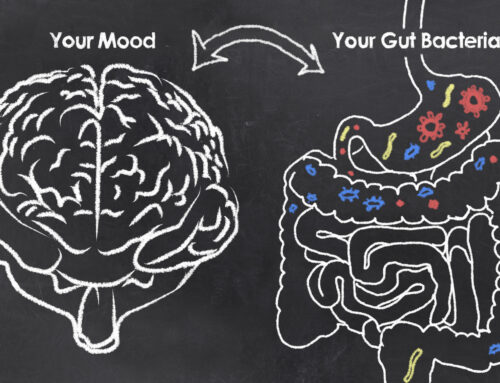Our habits play a significant role in pursuing a fulfilling and balanced life. However, not all habits are beneficial—some can take a toll on our mental health, affecting our well-being in profound ways. This blog post will explore some common bad habits that sabotage mental health and how to avoid them.
Poor Sleep Habits:
Sleep is crucial for mental health, yet many neglect proper sleep habits. Staying up late, irregular sleep schedules and excessive screen time before bed can disrupt sleep patterns, leading to mood swings, irritability, and decreased cognitive function.
Some habits that can improve your sleep:
- Be consistent. Go to bed at the same time and get up at the same time, including on days off.
- Spend time outdoors. Lack of exposure to natural light can disrupt the body’s circadian rhythm, leading to sleep disturbances and mood imbalances.
- Avoid large meals, caffeine, and alcohol before bedtime.
- Make sure your bedroom is dark and quiet and at a comfortable temperature.
- Remove electronics from the bedroom, such as TVs, computers, and smartphones. If you watch television before bed, explore blue light-blocking glasses to wear 30-60 minutes before bed.
- Being physically active can help you fall asleep more easily at night.
Poor Diet:
The food we eat has a direct impact on our mental health. Consuming a diet high in processed foods, sugar, and unhealthy fats can lead to inflammation in the body, exacerbating symptoms of depression and anxiety. Poor nutrition can also affect energy levels and mood stability. We have an entire blog post on the importance of nutrition and mental health. To access it, click here.
Sedentary Lifestyle:
Physical activity is essential for both physical and mental well-being. However, a sedentary lifestyle characterized by prolonged sitting and minimal exercise can contribute to feelings of lethargy, low mood, and increased stress. Regular exercise is crucial for reducing anxiety and improving mood.
A few things you can do to help avoid sedentary:
- Walk anytime you can. Instead of driving to your mailbox, walk.
- Stand instead of sitting when possible.
- Increase physical activity. You can look up classes at your local gym or YMCA or set up a time with friends to go hiking or biking. Look for active hobbies.
- Choose the stairs instead of the elevator.
- Use a fitness tracker if you need more incentive to get active.
Excessive Screen Time:
Many of us spend excessive time on screens, from smartphones to computers to TVs. Excessive screen time can lead to feelings of isolation, disrupted sleep patterns, and heightened anxiety. It’s essential to set boundaries and prioritize real-life interactions. Set screen time limits and rules, such as no phones or television while at the dinner table.
Substance Abuse:
Using alcohol, drugs, or other substances as a coping mechanism for stress or emotional distress can worsen mental health issues. Substance abuse can lead to addiction, mood swings, and impaired cognitive function, making it challenging to manage mental health effectively. If you are struggling with substance abuse, find help near you by contacting SAMHSA at 1-800-662-4357.
Negative Self-Talk:
Our internal dialogue has a powerful impact on our mental health. Engaging in negative self-talk, self-criticism, or rumination can perpetuate feelings of low self-esteem, worthlessness, and hopelessness. It’s crucial to practice self-compassion and challenge negative thought patterns.
- When these thoughts creep inbreathe. Taking a few deep breaths can help regulate your nervous system.
- Do something active like taking a walk. Physical activity releases endorphins, fueling positive feelings.
- Challenge the thought. Question the validity of the thought and ask yourself if this thought is based on facts or feelings.
Avoidance and Procrastination:
Avoiding tasks or responsibilities and procrastinating can lead to increased stress, anxiety, and overwhelming feelings. Chronic procrastination can also impact self-esteem and productivity, further worsening mental health. Breaking tasks into smaller, manageable steps can help overcome procrastination.
Social Isolation:
Human connection is vital for mental health, yet many of us struggle with social isolation. Withdrawing from social interactions and isolating oneself can exacerbate feelings of loneliness, depression, and anxiety. Making an effort to maintain meaningful connections with others is essential. Finding a support or spiritual group, such as a bible study, can help combat feelings of isolation.
Spending too much time indoors:
Spending too much time indoors can have significant effects on mental health. While indoor environments offer comfort and safety, prolonged confinement indoors can lead to various psychological challenges. Just as natural light is essential to good sleep, light exposure is critical for regulating mood and energy levels, and insufficient exposure can contribute to symptoms of depression and seasonal affective disorder (SAD). It also contributes to a lack of vitamin D, essential for mood regulation and a robust immune system. Be sure always to practice safe sun practices.
Identifying and addressing bad habits that sabotage mental health is a crucial step toward fostering mental health. By cultivating healthy habits, such as prioritizing sleep, nutrition, exercise, and social connection, individuals can empower themselves to take control of their mental health and lead happier, more fulfilling lives. Remember, breaking free from these habits takes time and effort, but the rewards for mental health and overall well-being are immeasurable.







Leave A Comment